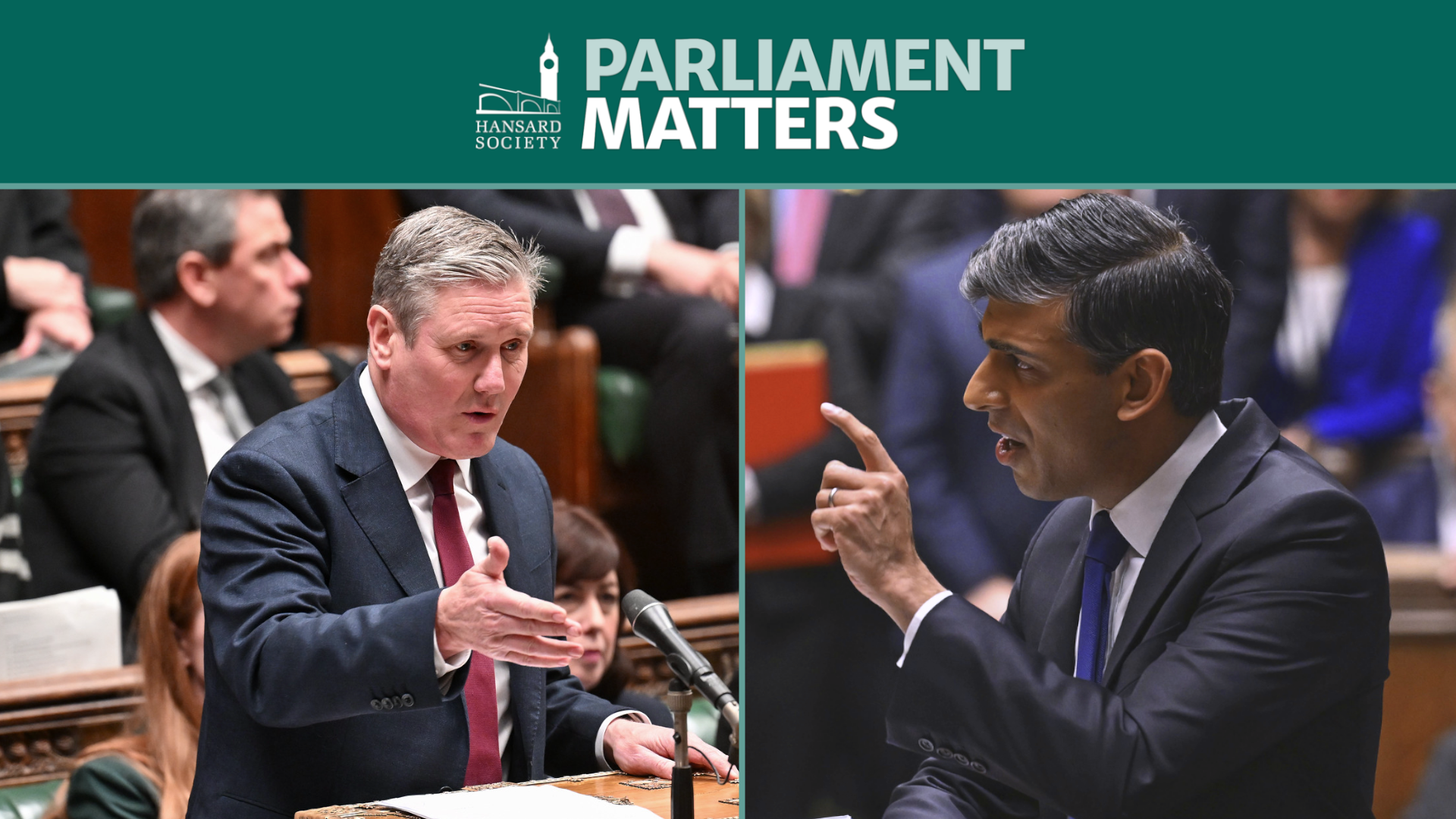00:00:00:00 - 00:00:16:24
You're listening to Parliament Matters, a Hansard Society production supported by the Joseph Rowntree Charitable Trust. Learn more at hansardsociety.org.uk.
00:00:17:01 - 00:00:39:19
Welcome to Parliament Matters, the podcast about the institution at the heart of our democracy, Parliament itself. I'm Ruth Fox and I'm Mark Darcy. Coming up, we take a look at the parties' manifesto plans to reshape parliament and politics. One of the country's leading constitutional experts, Professor Meg Russell, joins us to give her verdict on the parties' proposals to reform the Commons and the Lords.
00:00:39:21 - 00:00:55:07
But there's a warning from a key player in the House of Lords that even a Labour government with a very big majority could run into resistance on its proposals to reform them.
00:00:55:09 - 00:01:19:04
But first, Ruth, it's worth recapping. We're recording two weeks out from polling day, and the big surprise is that there haven't really been very many big surprises in this election campaign. I mean, the one real shocker was the entrance of Nigel Farage deciding that after all, he was going to contest the seat, because the last time we were here, we were talking about how he wasn't going to contest a seat and that was going to leave Reform hanging.
00:01:19:05 - 00:01:44:24
Well, Reform has rather taken off in the polls since then. But other than that, Labour's lead has remained commanding throughout. There hasn't been the kind of drop that maybe a lot of people thought might happen when people focus on the general election and some pretty terrifying polls have been coming out suggesting that the Conservative Party could perhaps, and of course, it's only a poll and you don't really know till polling day, but could perhaps be blasted back to bedrock.
00:01:45:01 - 00:02:08:18
Yeah, the Conservatives, I think, have converted the chaos of governing into the chaos of campaigning. I think probably the best thing one can say about their performance is extraordinary. It's absolutely bizarre, I think for decades to come political science professors will be teaching courses on how this bizarre election campaign by the Conservatives just disintegrated, where they seem to stumble from one pratfall to another.
00:02:08:20 - 00:02:27:20
Yeah, I mean, they're getting no traction on any of their messages because frankly, none of it really gels with their record in government. So, you know, I think like taxes, it's not sticking because nobody believes what we've got to say. We had a bit of policy early on in the campaign. But I mean, policy seems to have been junked in favor of chaos day after day.
00:02:27:22 - 00:02:46:13
Well, I suppose there will now be another two weeks of pretty continuous bombardment of Labour. Labour will put up your taxes headlines on just about every Tory tabloid. That's not hedging its bets. And we'll have to see whether the Labour Party can come through that. But at the moment it looks like Sir Keir Starmer is heading for Downing Street.
00:02:46:14 - 00:03:07:02
He's almost at the get ready to measure the drapes phase of campaigning. Well, even the Conservatives are conceding that, aren't they, because of the way that they're effectively acknowledging without having to acknowledge, given the scale of the polling, the prospect of them turning this round is increasingly remote. But I mean, if you look at the polls that have come out in the last few days, they vary.
00:03:07:04 - 00:03:27:03
They these polling models, they vary in terms of the scale of the potential defeat, but they're all pointing in one direction. And, you know, it's just a question of the order of magnitude. The best the Conservatives on the recent polls look like they can get is a 1997 scale result. That would be a good result for them. The alternatives are much, much worse.







